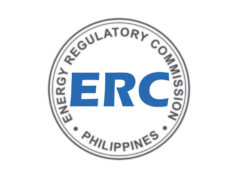THE 51ST Annual Meeting of the Asian Development Bank (ADB) in Manila this year will focus on economies left behind amid Asia’s rapid expansion.
“As you know in the last 50 years the ADB has been very successful in improving the standard of living among its members. However, when you have successes like that you create new situations that have to be addressed,” Finance Secretary and Chairman of the ADB Board of Governors Carlos G. Dominguez III said in a statement.
Mr. Dominguez said that the Bank has been successful in improving living standards across the Asia Pacific, but now has to contend with new problems arising from the region’s economic resurgence.
“When the tide rises, all boats rise. Unfortunately, in economies, that doesn’t happen all the time. There are some communities that are not as progressive and vital as other sectors,” he said.
The Philippines will host the 51st Annual Meeting of the ADB Board of Governors in Manila on May 3-6 with the focus on “Linking People and Economies for Inclusive Development.”
Mr. Dominguez said in his closing remarks in last year’s meeting that the regional lender should “begin a process of reinvention” so that its programs can realign to meet new global realities.
These new realities, he said, include the shifting of the balance of economic power to Asia, the rising economic nationalism and hostility to globalization in the US and Europe, and the emergence of new multilateral lending institutions such as the Asian Infrastructure Investment Bank.
The 2018 agenda will take off from last year’s annual meeting in Yokohoma, Japan, where the Board of Governors committed to strengthen efforts to develop infrastructure, collectively strengthen the region’s resilience amid growing global economic uncertainties now that Asia is expected to lead global growth, according to Mr. Dominguez.
“The economic balance of power has shifted. Asia is now expected to lead global growth. We cannot be content to simply track the development experience of the West,” he said.
He also expressed caution over emerging protectionist and anti-globalization policies in the US and European economies.
As for the Philippines, the key elements of its inclusive growth strategy are a “massive infrastructure program to bring us up to par with the region and a comprehensive tax reform package that will support robust economic investments in the country’s future,” he said.
“The first element is indispensable. For decades, the country lagged behind its neighbors in economic investments as we grappled with a debt overhang. We have to close the infra gap to achieve investment-led growth and evolve a truly inclusive economy,” he said. — Elijah Joseph C. Tubayan



